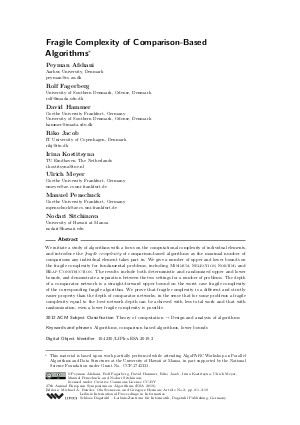LIPIcs.ESA.2019.2.pdf
- Filesize: 0.63 MB
- 19 pages

 Creative Commons Attribution 3.0 Unported license
Creative Commons Attribution 3.0 Unported license

















Feedback for Dagstuhl Publishing